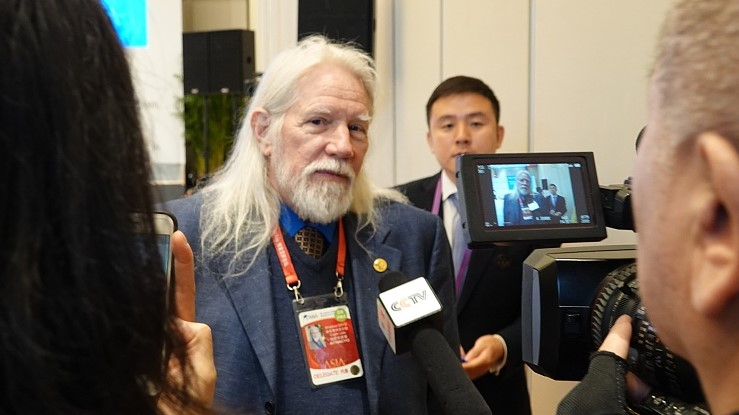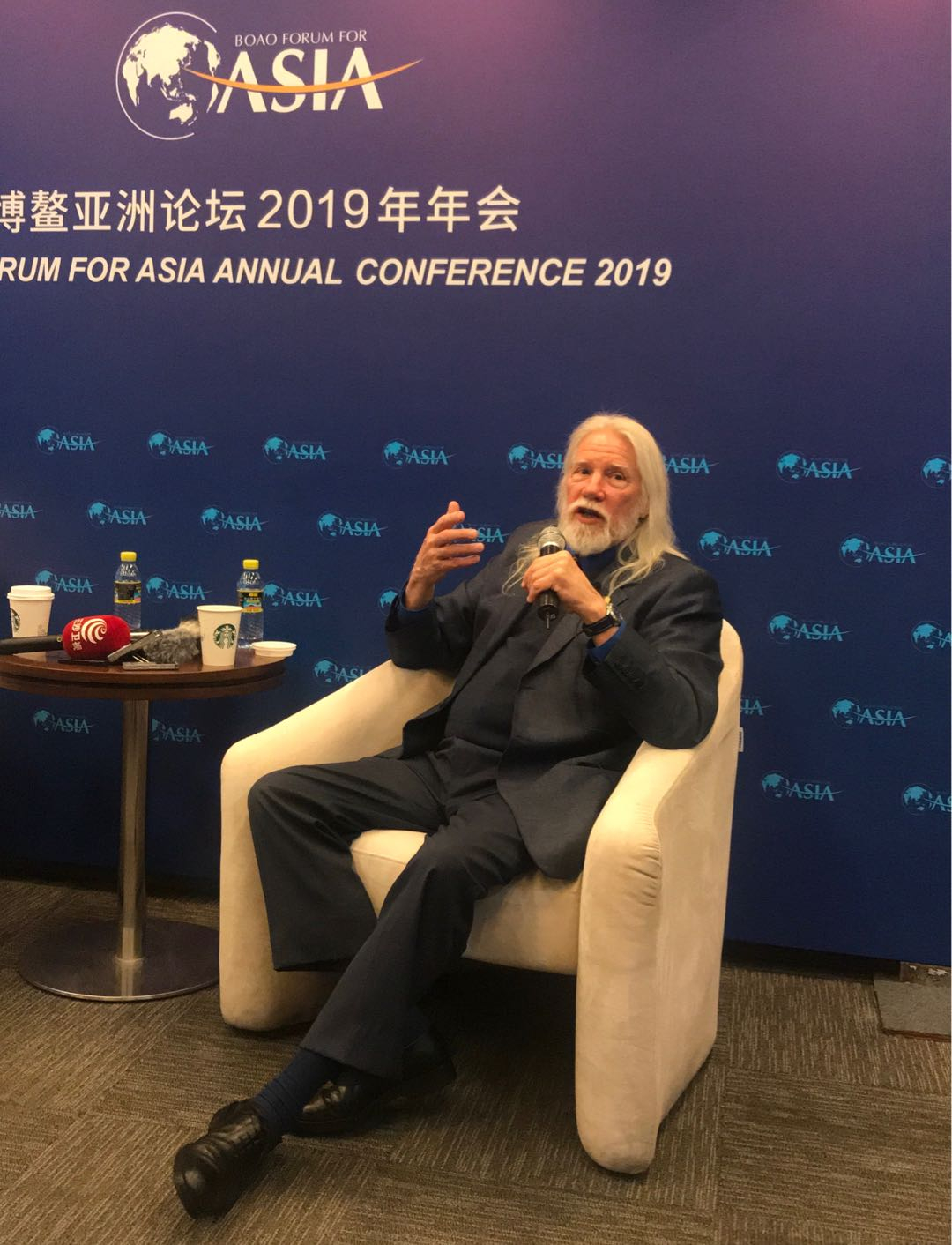
Technology
17:11, 28-Mar-2019
Whitfield Diffie thinks highly of China's AI potential
Updated
19:17, 28-Mar-2019
By Guo Meiping

From facial recognition systems at entrances to smart simultaneous interpretations during each panel, artificial intelligence (AI) can be found in almost every corner of this year's Boao Forum for Asia.
AI is an important area for China.
The country's Ministry of Science and Technology identified four domestic tech companies in 2017, Baidu, Alibaba, Tencent and iFlytek, as the "national team" to boost the development of AI technology.
"I think given China's position particularly in super computing and maybe for the longer run in quantum computing, a very strong Chinese position in AI is very likely," American cryptographer Whitfield Diffie, one of the 2015 Turing Award recipients, said at a press conference during the Boao Forum.
Diffie compared the development of AI to supercomputing.
"In the given moment, supercomputing is the best you can do," he said. "All of our watches, now have just as much power as supercomputers few decades ago."
Similar to that, the Turing Award winner said that AI has been the subject of trying to get computers to do things that people have no idea how to get them to do.
"As new things are discovered, the field grows."
Diffie expects the field of AI to keep changing, and he's confident that AI would do more impressive things.

Whitfield Diffie, American cryptographer who is one of the recipients of the 2015 Turing Award, speaks at a press conference during the 2019 Boao Forum for Asia. /CGTN Photo
Whitfield Diffie, American cryptographer who is one of the recipients of the 2015 Turing Award, speaks at a press conference during the 2019 Boao Forum for Asia. /CGTN Photo
There have been concerns over whether quantum computing would be a cryptographic threat.
Diffie, co-inventor of public-key cryptography, admitted that quantum computing is a threat to a very narrow and very important area of cryptography.
"But not all of it," said Diffie. "In particular, the public key cryptographic systems we developed in the 1970s are vulnerable to quantum computing."
The subject of algorithm ethics was also under discussion during the press meeting.
Diffie said that it's unfortunate to see the behavior of the Internet controlled by algorithms.
"My co-author Susan Landau said to me a number of years ago that the current Internet has facilitated something that's like the people who bought the paper and just opened to the sports page," said Diffie.
"The Internet would bring you just the things that interest you. I see that as a concern, but I don't think you can legitimately do something about it."
How does the 'Father of Modern Cryptography' deal with passwords?
Praised as the "Father of Modern Cryptography," Diffie said that he believes in writing passwords down.
"Straightly speaking to that, you write them on paper and you put them in your wallet, almost none of us use computers that are more secure than our wallets," Diffie said amid laughs from the crowd.
(Top image via VCG)

SITEMAP
Copyright © 2018 CGTN. Beijing ICP prepared NO.16065310-3
Copyright © 2018 CGTN. Beijing ICP prepared NO.16065310-3